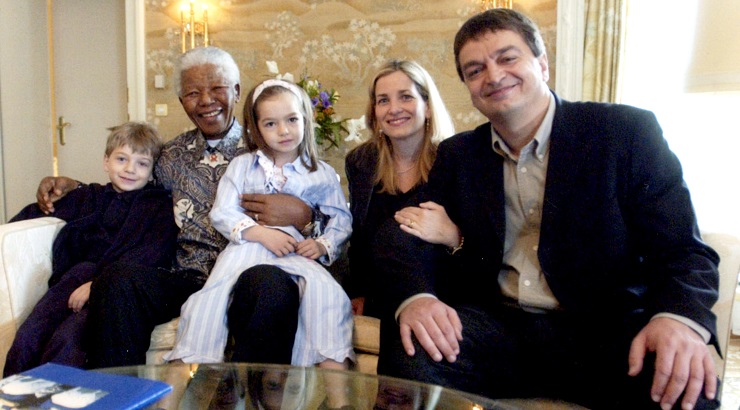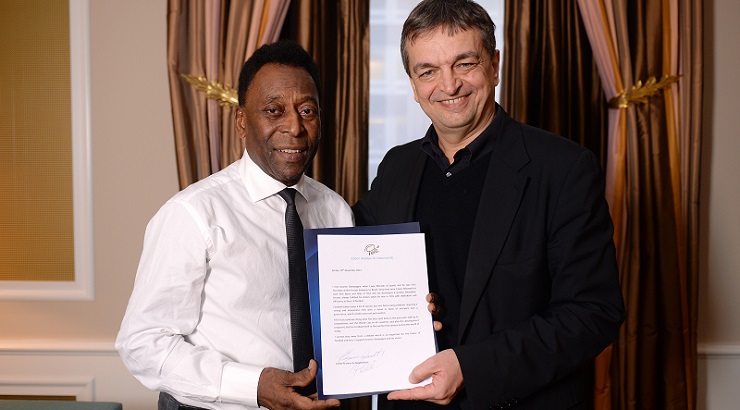Former FIFA Official, Jerome Champagne, A Hope For Football?
Press Association – There will be at least one Frenchman in the race for the FIFA presidency after Jerome Champagne, a former senior FIFA official, threw his hat into the ring.
Champagne has submitted eight nomination letters from national associations – he had intended to run in the May election but failed to get the minimum five nominations on that occasion.
In a letter to FIFA’s 209 member associations, he says: “With determination and respect, I come before you again as candidate for the presidency of FIFA for the elections on February 26, 2016.
“The events of the past few months have renewed my determination to be a candidate.”
Champagne worked under outgoing FIFA president Sepp Blatter as deputy general secretary of the world governing body until he was forced out in 2010.
He is known to be no friend of Michel Platini, the UEFA president who is also intending to run for FIFA but has been provisionally banned for 90 days by FIFA’s ethics committee pending a hearing into a £1.35million payment he received that was signed off by Blatter in 2011.
 Champagne’s announcement comes ahead of Monday’s deadline for the February 26 vote and he joins fellow Frenchman Platini (subject to his suspension being lifted), Prince Ali bin al-Hussein of Jordan and former Trinidad and Tobago player David Nakhid in submitting his nomination. Asian Football Confederation president Sheikh Salman al-Khalifa from Bahrain is also set to stand.
Champagne’s announcement comes ahead of Monday’s deadline for the February 26 vote and he joins fellow Frenchman Platini (subject to his suspension being lifted), Prince Ali bin al-Hussein of Jordan and former Trinidad and Tobago player David Nakhid in submitting his nomination. Asian Football Confederation president Sheikh Salman al-Khalifa from Bahrain is also set to stand.
Champagne said the timing of his departure from FIFA meant he had no connection with the scandals that emanated from the 2018 and 2022 World Cup votes in December 2010, or the presidential election the following year.
He added: “My career at FIFA was cut short in January of 2010. I lost my job as a result of pressures coming both from within the organization and externally. There is no need to delve into the reasons or the persons behind my ouster, as they are known by all.”
“As such I have no connection with the issues surrounding the December 2010 vote, nor the special interest groups trying again to take control of FIFA.”
Champagne has promised to help the smaller and poorer associations, encourage clubs to keep young players rather than sell them, introduce video technology to help referees and bring more transparency into the running of FIFA.
His plan includes cutting Europe’s influence by reducing its places on FIFA’s executive committee and the 13 spots it has at World Cup finals.
“We need to save FIFA and its role of governance and redistribution, which is in danger at a time when they are needed the most. We must also restore FIFA’s credibility, and prepare it for the challenges of an ever-evolving world.”
“At a time when FIFA, our FIFA, needs more than ever an open debate about its future, its reform and the reform of football, we are witnessing the first months of the electoral campaign being dominated by controversy and deals made behind closed doors.”
Champagne has also called for all candidates to take part in a series of televised debates.
Champagne worked as an advisor to Blatter from 1999 to 2002 before holding the positions of deputy secretary general, delegate of the president and director of international relations.
 His announcement comes on the day footballers’ union FIFPro published four “vital criteria” it believes the next FIFA president must meet if the game’s governing body is to repair its reputation.
His announcement comes on the day footballers’ union FIFPro published four “vital criteria” it believes the next FIFA president must meet if the game’s governing body is to repair its reputation.
FIFPro said the new FIFA president must have a proven capacity to drive reform of a democratic and politically complex global body; a governance record; a human rights record; and an understanding of the game as a sport and business.
Salman’s potential candidacy would not be without controversy, given questions he faces about human rights abuses in his native Bahrain, specifically related to the pro-democracy uprising in 2011. Salman has denied the allegations.






